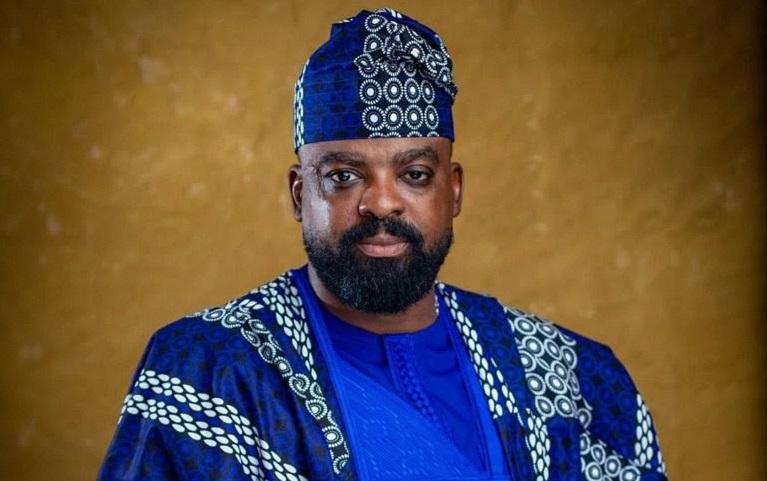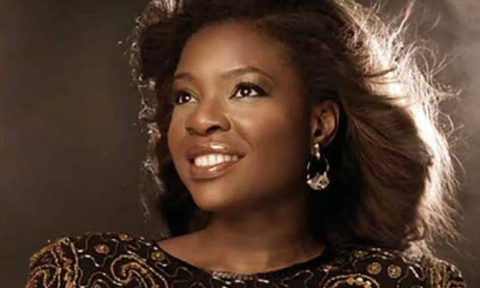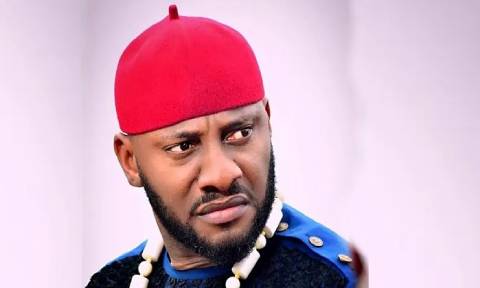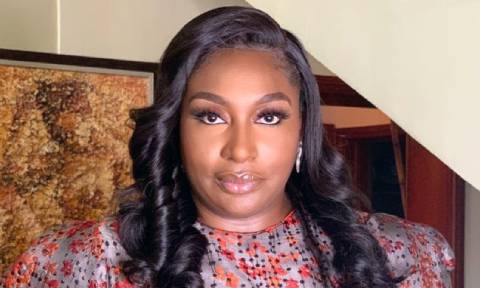
David Uro, a motion picture Director, popularly known by folks as D-irrepressible, might not have a face that depicts popularity but has gone far in the job of directing films. In this interview with TRAINEE REPORTER, Ifeoma Meze, Uro explains what being a movie director entails, the fame that comes with it and why blames should not only go to directors for most Nollywood movies that are not up to standard. Excerpts:
Despite your feat in the entertainment industry, not many actually know who you are.
My name is David Uro. I am from Ebonyi State, Afikpo North precisely. Officially, I qualified as a filmmaker but I refer to myself as a visual caterer or a visual carpenter or a visual buccaneer. In essence I see myself as one providing visual food for the visual consumer both for the big screen and the small ones. That means I dabble into commercials, documentaries, dramas and musicals.
I have a degree from the National Film Institute in Jos with training from Dakar Media Centre in Senegal and an extended training from Bornmouth Media School, United Kingdom.
So, would you call yourself a movie director?
A lot of people refer to me as a movie director, while others also refer to me as a cinematography director because in Nigeria, nobody just jumps up today and becomes a director. Some started as writers, some as sound men, some as cameramen, some as editors. It depends on your primary aim or interest. From there you become a director and wherever you sprung from has a way of determining what kind of director they would label you.
When did you get into directing?
I made my debut in directing in 2003. That means the first film I directed was in 2003. The film was Beyond the Song and since then it’s been. That one was kind of special for me because majority of the crew members were my close friends. From the Assistant Director down to the Lights men, they were all my friends. And for me, it was difficult to shout on anybody because they were my friends.
How has directing been so far for you?
I would say it has evolved over the years because over the years, people tend to brand you with whatever you churn out. So if a particular job of yours is popular, people would start to refer to you from that angle. And for me, over the years, a lot of people have remembered me more on documentaries than dramas. This is due to one of my documentaries that got popular, titled Power Play that I directed for the British Council.
So how do people get to know those behind the screen because actors and actresses get all the popularity and attention from the press after playing characters in good movies?
Well, in all sincerity, I would say to you that every aspect of this business has its blessings and challenges. That is, if you are an actor, people know you, people remember you as an on-screen personality. And naturally it opens a lot of doors for you and also robs you of your privacy. But if I want to take an Okada in Lagos I take it comfortably, except people who know me very well. It’s easy for me to avoid getting into one public scene or the other by people who don’t know me. I would just walk past them and it feels good, but an actor cannot do it. So that’s where their challenges are. For me as a behind the screen person, it’s a lot easier I can afford to buy akara on the streets and even the woman selling the akara might not recognise you except she has seen you on the television or on the newspapers. But if you are an actor, anywhere you go, people would know you, so it’s a mixture of challenges with blessings.
If you had an opportunity to switch to an on-screen personality, just to become popular, would you oblige?
Never, I would never ever swap my privacy for anything in this world.
So, you love directing, and being behind the scene?
It’s a fantastic job. I love it. It brings its tension, pressures, deadlines and financial rewards.
You’ve been directing for six years now, have you directed any foreign work?
Yes, Power Play was shot in Nigeria and in the United Kingdom. It was a documentary about how alternative source of power affects those whom these things are served. It was a thematic comparison between a Nigeria solar developer and a United Kingdom-based wind turbine developer. That was the first time I shot a film outside the shores of this country.
In the Directing jobs you have done abroad, do you work with more equipment than you do in Nigeria?
Not really. Most times it depends on the people you are working for.
Can you name a few of the movies you shot outside the country?
I did Power Play, and I did Mints. Then this one I shot in Dakar, it was a reaction to Sum Sum. It’s like their local drink. It was a documentary too.
Back home in Nigeria, how many have you shot?
Well, since 2005 most of the contracts I have gotten have to do with company presentations but I have done quite a handful which I can’t really make an accurate count of. Basically it spans within dramas, documentaries, educational films and home videos.
Was there any blockbuster film you directed?
It’s yet to be released. Ogogo is also one and it’s quite popular. Shariafobia is popular in the north because it’s centred on people’s fear for Sharia that is not founded basically and I had to take it from the non-Muslim point of view, exposing the truth of Sharia that people dread so much. Mostly I have done presentations and documentaries for companies. So you don’t get to see those ones on TV because the companies don’t use those ones to talk to their clients. So I do a lot of presenting and packaging.
So, which directing job do you prefer, is it the documentaries or the presentation or movies?
Based on my training, I trained in all, but when you get into the business, the kind of jobs you attract eventually moulds your specialisation; the kind of jobs people throw at you moulds your specialisation. So you don’t go telling people that you are good in drama or movies or presentations. People from seeing your previous jobs, are comfortable with the kind of jobs they throw at you. Like they say in this business that you are as good as your last job, no matter how fantastic you are, your last job is your rating. If your last job was fantastic, then you are fantastic. If you won an Oscar a year before and your last job sucks, then you suck.
Have you directed any reality show?
Yes, but not in Nigeria. The reality shows I have done were in Ghana and partially shot in Morocco and Mali. It was a youth empowerment project. I did content directing for True Search for Niggizy and Zain but it’s not out yet.
What are the challenges that you face in this career?
Like I always say, movie business is a business that is based on showing off. That’s why it is called show-business and to show up, you need a lot of cash to show off and of course you need talent, but talent is not enough. Mostly, people are comfortable to tell you that an average Nigerian movie is done with five million. I’ll give you ten million; let’s see you do a better film. My friend like Jeta Amata, if he tells you how much he used in doing Amazing Grace you would go like wow, that’s much. But it’s not something people would sing about. Good enough, of late, a lot of corporate organisations have started coming in, but the challenges mostly have always been cash and those who bring little cash make most of the noise. Those who bring little cash they have a way of wanting to see the profit immediately, but they don’t know that movie has a way of breeding its own.
Do you have challenges with actors and actresses you work with?
Documentaries mostly are done on realism, real events, real situations, and real people. Most of the times, working with people in documentaries, you do not put up with some people directly like that but in drama, most actors whom you don’t know have a problem taking instructions from you but once an actor or actress had worked with you before and you delivered, once they see you they become confident and comfortable. Some older actors would want to run you down or take over your setting if you don’t stand well. They would want to give you the impression that they have been around for a long time, they look at you like ‘who the heck are you?’ They would want to start controlling you on set. While some older actors have this fantastic sense of professionalism that keeps you humbled and focused, you only get in trouble when only ‘you’ mess up.
Do you have challenges with the traveling that comes in line with this career?
I don’t have a problem with traveling. I have always loved it. In this job, one must move. I have visited 35 states in this country. Kwara is the only state I have not visited because I just pass through it. If you don’t know me very well and you call me consistently within three weeks and I tell you where I am, you might think I am lying to you. It used to be like fun or hobby, but it has become part of the job because I have clients in almost all the states. Some of my clients would call for a job and you are given a maximum of one week to assemble a crew and get to work. So in that case traveling has become part of my life now not the job any more.
Does this movement infringe on your private life/relationship?
For my family, virtually everybody in my house travels. My immediate younger brother is a footballer, so every week if they are not playing at home, it would be away in another club. My other brother is into advertising, planning event and executive outfit, so he travels too. My father was a pretty much traveler himself. He was the head of a transportation department of a construction company. My mother sees it as a hand over baton that her boys have got professions that keep them on the road and so she is always on her knees asking God to protect her kids. We are five in my family, four boys and a girl. Three of us (the boys) are always on the road. For my relationship, my girl understands.
Does this job make you select the kind of girls you go out with?
I am done with selecting the girls I go out with. I have a girl. I always believe that what will be will be, what will go wrong will definitely go wrong no matter how hard you try. If one has to work very hard, pass through too much struggle just to keep someone, then, it’s not meant to be. If the person is meant for you, then you don’t have to labour that hard just to keep him or her with you. It does not influence my relationship.
People complain that most Nollywood movies are not up to standard; are the problems from the directors, writers, or actors?
I once told you that I run like a visual restaurant. I am the CEO for Mailman Entertainment. If you ask me where the problem is, I will tell you that it has gotten to a point where people fight what they don’t know, they fight what they don’t understand. Everybody has a stake in the fault. Sometimes the actors will tell you they have only three days to spend on set that they are going for another job. They will charge and they will expect you to rush all the scenes. Even when you have to bring out mood, you get stuck because the up-coming actors are watching the kind of treatment you give these so-called stars and they too would not do the job from their heart, thereby frustrating the entire set. Most times the producer will be on your neck to rush up some jobs just because money is at stake. Some will even think you are delaying the job to get extra cash. No producer goes to the press to say, our money finished, it’s always, ‘the director finished the money,’ ‘he was just throwing money around’ and all that. So it’s a collective stake. I was once in a job and one Lagosian had this natural hatred for people that trained in the north and before you knew it he backstabbed the entire crew and took the job over. People like that believe in sustaining a particular cartel that might not move the industry forward because you are streamlining the flow of new ideas.
How would you rate Nigerian movies?
Just as we have levels of consumers for food, clothes, and so on, there are also levels of consumers in movie industry, people who watch these movies. There are local consumers, people that once you put the faces of their favourite actors, they will watch it. No matter what you dump on their laps, they will take so far as their favourites are there. Then there are the ones who are in the middle class who would watch movies because Genevieve, Omotala or Jim Iyke is one of the key actors in the movie while there are the higher level consumers, these people look out for the art, the directors. I know of a friend who would watch anything with ‘Izu Ojukwu’ on it and another would watch once it is Teco Benson that directs it. To them it doesn’t matter whose face is there.
There are grade A movies like when you see people like Spielberg, Nicasa Ventis, Mac Martin Campbell, Guye Richie among others you would want to watch their movies.
When I see what people call ‘a bad job’ the first thing I would ask is what condition was the director in when he shot this movie. Some people who are not aware of what happens in the background, they just feel it’s all about carrying a camera and saying ‘cut’ and ‘action’ but it’s more than that. A standard set carries an average of 250 different professions in the background apart from those acting; carpenters come in to build set, a professional set designer, costume designer, production designer, a make up supervisor, a make-up artist, a welfare or the catering organisation, stunts men, people who supervise effect and host of other people you never ever see their faces in front of a camera.
If you are made the head of Nollywood entertainment, what would you do to make it better?
If I was the head of Nollywood, I will flush everyone who has been responsible for drowning creative heads just to get some cheap bites. Secondly, I will make sure that everybody who is a true practitioner stays educated and learn more about art and science involving film making. I would encourage training of practitioners abroad.
What is your view on the issue of movie people being loose?
On the issue of people saying that we are loose people, that we sleep around and all that, most times, it’s not true. Sometimes these girls throw themselves at you and if you don’t make any move, I am not saying I do it, so if my colleagues don’t make any move the impression will be that they are either impotent or gay. So they claim that they want to sample to show that they are not gay and not impotent. I am not defending anybody but that is usually what happens. Sometimes the girls throw themselves at you just to get a role. But that doesn’t mean all the girls explore their flesh to bid for roles.
What would you say about the talents in Nigeria?
There are enormous talents in this country. Famous Bimbo Akintola once said it to me. She said that there are talents in this country, most especially one of her classmates, but she does not know where she is now. When I started, the attitude we got from practitioners before us was ‘these boys have come to take our job,’ ‘these boys want us to be jobless’ and that attitude can kill talent. But we found out that there is enough for everybody. Thankfully now a few of them have realised that we were there to make it better, they even give us jobs to do. There are a lot of massive talents in Nigeria that has to be honed.
Who are your role models?
In Nigeria, first Sadiq Balewa; he is an extra ordinary film maker. He encourages talent. Izu Ojukwu, Aquila Njamah, Njamah was the first man that called me a film maker. David Orere, the man who directed Things Fall Apart. He is one man I grew up watching his cinema and African style. For documentaries, Felix Ndaye, Idris Odrigo, Gaston Kabore and T.K. Junaid of Refuge Island Media (RIM); for foreign directors, Ridley Scott the director of Gladiator and Kingdom of Heaven. Guzvan Sant, Dominic Saner, Nick Casavetics, Guye Richie and Steven Spielberg.
What principles do you adopt while directing?
My main principle is to get the job properly done, even when what you are making from it is going to go back into the job. I look out for the detail and I always look towards getting a fantastic result.
Do you think directing is something you must learn from school?
No and yes. No, you must not have to go to school. Yes, because you have to learn. There are things you learn from constant practice (in the field) that you don’t get to learn in class. And there are things you learn in class that you cannot bump into in the field. For example, Quentin Tarantino, the man who directed Kill Bill and pop fiction did not go to any film school but he is an A list director in Hollywood, he learnt from watching other people’s films. Same with Robert Rodrigas; he believed in continuous shooting of films and you get better. But education does not kill. In education you are guided, you are taught the dos and the don’ts. But experience exposes you to the dos and the don’ts and you suffer through the green areas of the dos and the don’ts.
For one to be a good director one must be able to read in between the lines, read the mood in the lines, read who he wants to project, read whose character the scene belongs to. How a director reads a story is how the story will come out even if the writer is the best in the world.
Would you say this job is fulfilling?
Well I do not have an Escalator Jeep yet; I do not have the estate yet. But I pay my bills. We are on our way there. It is getting better with the help of movie censors board.
In case of another job opportunity, would you drop directing?
Movie has always been part of me from when I was little. When I was growing up, I was highly addicted to a T.V show Sesame Street. If I did anything wrong and my mom wanted to punish me, she would wait for me in front of the Television once it was 4p.m. because she knew that no matter how far I ran, I must come home to watch the 4 o’ clock programme. It was that bad. So, when I went into the movies, my mother was not surprised. In our neighborhood in Jos, where I grew up, I lived two blocks away from Peter Igho (former NTA director). In my school days, I was taught by late Matt Dadze.
The first time I saw a camera was when I was thirteen. I went for coverage with my uncle in Zaria. He works for Ahmadu Bello University and since then neither I nor the camera has had rest.
Apart from directing, what other career would you choose?
If I was not a visual person, I would have loved to be a structural engineer.
What would you say to up-coming directors?
It is always difficult to give advice to young people when you are a young man yourself. I would tell them to learn, learn and learn and when you are done with learning, then practice. Then remember that every work of art depends on the public to judge. When your time comes, it will always find you. Stay focused and waits for your turn, it will come.
Does directing have anything to do with creativity?
Directing has a lot to do with creativity. You cannot separate them. They are synonymous. Director is like ‘God’ on set and every other member of the cast and crew is an atheist. Before a director can perform the miracles on set, the director has to make the cast and crew to believe in him.
The director is the one who creates, like God created the earth. Someone writes in black and white on paper (Writer), the director pulls out the character and gives them flesh and blood to feed the viewers with living colours.
What has been the high and low point of your career?
My high point has been the awards I have picked. Then, I was invited to meet with Prince Charles when he came to Kano in 2006 because he saw one of my works power play. The low point is when people do not see the risk that comes with this job and they critise or trash your work without minding the efforts behind it.
Have you had any award from your work?
Yes, I have received three awards. I picked best documentary film for 2006 Abuja Film Festival. I also picked the Role Model award for youths in northern Nigeria in 2005 and 2007. I got nominated for features award as best producer of the year in 2006. In 2005, Power play got serious mentioning in United States film festival. In 2006, Sharia phobia was well received in international documentary award.
What are your great expectations?
Every director, cinematographer, costumiers, actor among others has it written somewhere in his mind to give an Oscar acceptance speech.
Do you think Nollywood stars would eventually start getting international acceptance?
Yes, they have started getting that already. At Berlin last year, a German film festival, Kate Henshaw was a special guest of honour and she was branded a Nollywood superstar. Then Newton Uduaka had collected an award abroad few years back.
Ricky Famuyiwa was among the crew that directed Brown Sugar. Hollywood is gradually approaching exceptionally gifted Nigerians and taking them out for training abroad. I will say we are getting there.



















